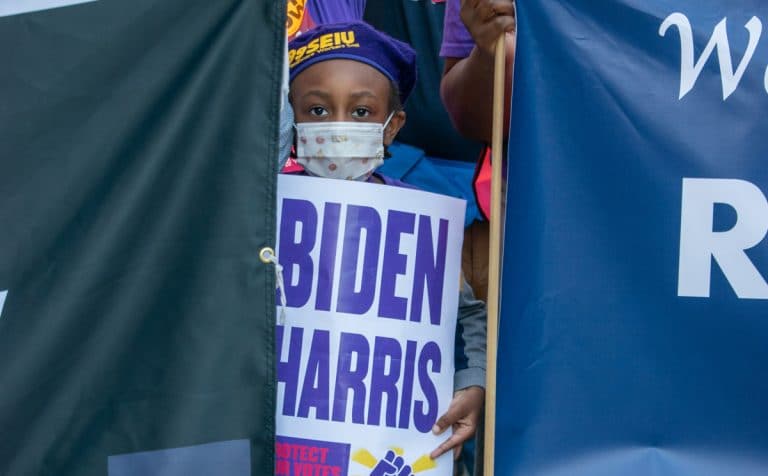The many challenges that president-elect Joe Biden faces
Despite Trump’s relentless efforts to undermine the election results and stage an illegal coup, it seems that president-elect Joe Biden will, as his clear victory warrants, assume office come January and become America’s 46th president. But Biden’s real ordeal will only begin once he enters the White House, as he will inherit a country split along political lines and a highly divided Democratic Party.
Against this backdrop of a nation in turmoil, Biden will not be able to play the Trump card anymore come January. He will have to prove to voters that he is more than just a palliative to the catastrophe the nation has endured over the past four years, and that he can deliver real changes based on a clear political vision—something he currently lacks.
Although Biden has won the election by over five million votes, Democrats have overall fared rather poorly on 3 November: they saw their majority in Congress shrinking and lost most of the Senate seats they were hoping to flip. But instead of waiting for all of the election data to become available and engage in a sensible retrospection about what went wrong, centrist Democrats immediately attacked the party’s progressive representatives, claiming that it was their calls to defund the police, ban fracking, and adopt a Green New Deal that had lost them those seats. In doing so, centrists have all but ignored the extensive grassroots campaigns launched by progressive candidates in urban centres in swing states like Georgia, Michigan, Pennsylvania, and Wisconsin, which proved to be crucial in securing Biden’s victory.
Biden, on his part, has seemed more eager to reach out to colleagues across the aisle than to engage in genuine, productive conversations with his own party’s left wing. In order to sustain the full support he had won in order to defeat his predecessor, Biden must make a real effort to give progressives and the more left-leaning members of his party a seat at the table in his new administration, recognising that they represent a great swath of young Americans and acknowledging that they constitute the true source of excitement behind the party. This would mean, among other actions, taking bolder steps against the fossil fuel lobby (which he is presently tied to) and expanding his parsimonious healthcare solutions (Biden’s current plan will do little to ensure quality, truly affordable health coverage to all Americans).
On the national stage, Biden’s challenges are just as sizable. The hordes of MAGA demonstrators flooding cities across the nation in support of the president and his bogus claims of election fraud signal that Trumpism is here to stay, at least for now. After all, Trump did win more than 73.5 million votes (second only to Biden in the most votes cast for a president in US history). And so, facing a visceral resistance from conservatives and the Republican-controlled Senate, Biden’s instinct to appear palatable in the eyes of as many Americans as possible and his effort to undermine attempts at portraying him as an extremist are understandable. But while this tactic was sufficient to get him just over the finish line in the race to unseat a dictator-in-the-making, it will most certainly not be enough to make him a successful president.
As he strives to mend the nation’s divisions, Biden will have to take courageous steps on major issues that matter a great deal to huge portions of the population—in areas like the environment, healthcare, and immigration, to name a few—without fear of alienating conservatives and centrists. Giving people real access to healthcare, ensuring their communities are clean and safe from state-sanctioned violence, and including them fully in the transition to a more sustainable economy could prove far more efficient in getting an increasing number of Americans on board with Biden’s agenda. Advancing bold, humane policies with confidence and gusto will surely, in the long run, leave a much more favourable impression on people than buttering the public up with paltry, half-baked resolutions that produce little change.
Biden’s ascent to the presidency was made possible, arguably, by the absurdist horror show staged by his predecessor. For many Americans, their vote in the 2020 election wasn’t so much for Biden as much as it was anti-Trump. Biden’s mandate, therefore, is narrow and conditional to his performance.
And let’s not forget that Democrats’ failure to address the core issues of socio-economic, racial, and environmental crises, as well as their obstinate flirting with corporate powers seeking to preserve a crumbling status quo played a huge part in getting us to our current state of emergency. In order to seize on the opportunity given to him to heal the nation and set it on a more positive path, Biden must slough his good-ol’-Joe persona, drop his ‘return-to-normal’ act, and effect genuine change through brave policy. Ultimately, it boils down to where his loyalty lies—with big money interests or the people who made him president.





